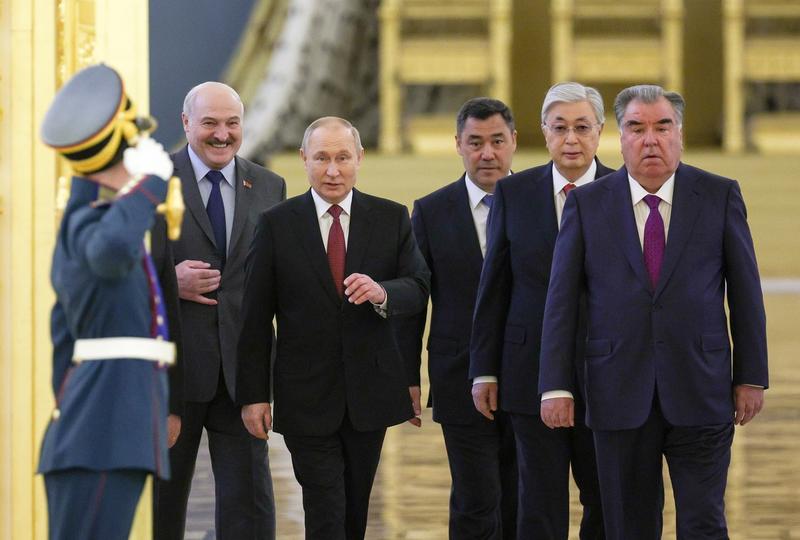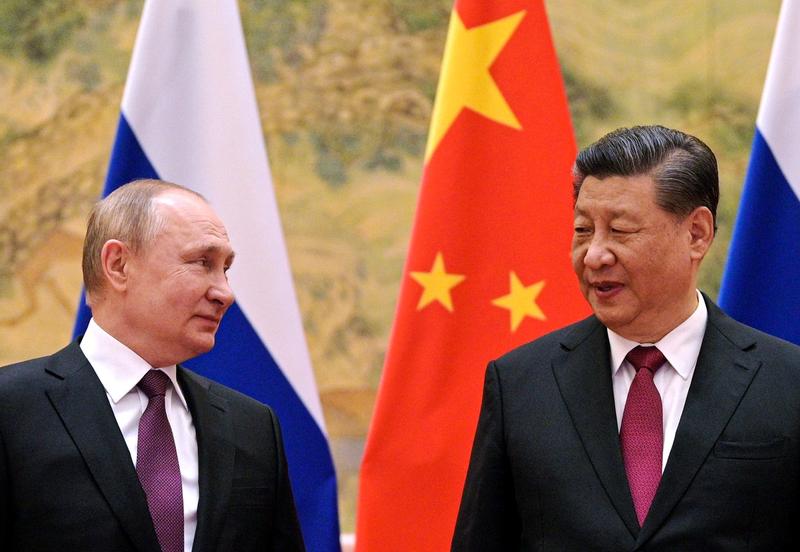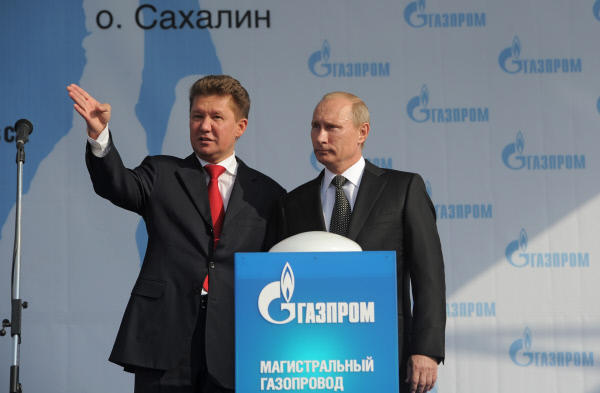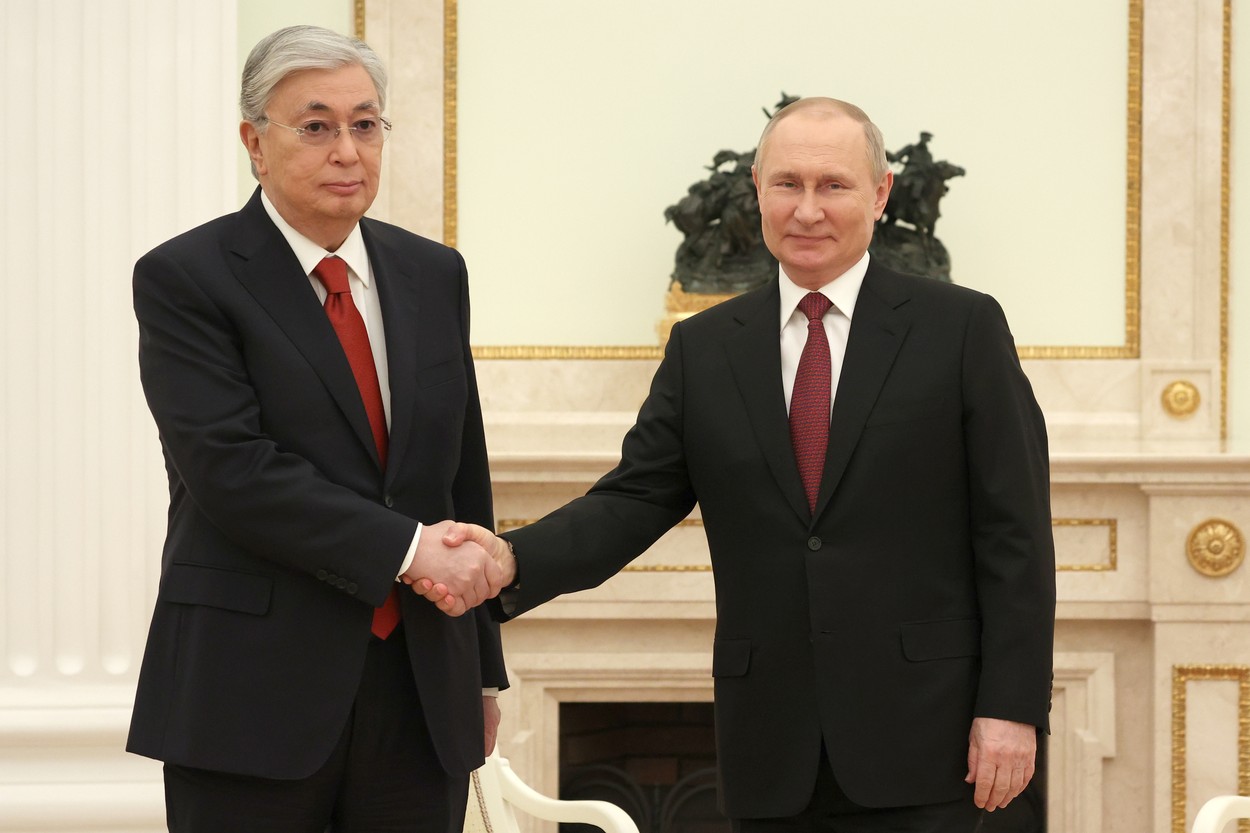
Even before the invasion of Ukraine in late February, Putin seemed to have reached the peak of his influence over the former Soviet Union (USSR), writes Al Jazeera.
In January, a popular uprising in Kazakhstan forced its president Kassym-Zhomart Tokayev to “invite” hundreds of troops from the Russian-led Collective Security Treaty Organization (CSTO) to “quench the terrorist threat.”
Meanwhile, the Taliban takeover of Afghanistan in August 2021 helped Russia increase its influence in the rest of former Soviet Central Asia.
Last year, Russia brokered a peace deal between CSTO members Armenia and Azerbaijan and deployed thousands of peacekeepers to the region after the conflict over Nagorno-Karabakh escalated into a weeks-long war in which Azerbaijani forces captured large swathes of territory.
With other Russian bases already present in Armenia and two separatist regions of Georgia, this development meant that Russia gained a military foothold in all three countries in the South Caucasus region, which borders Iran and Turkey.

Vladimir Putin at the summit of the CSTO leaders Photo: Serhiy Bobylev / TASS / Profimedia Images
The military presence has helped Moscow regain some of its Soviet-era influence in the Middle East, where Russian bombers have played a crucial role in supporting Syrian President Bashar al-Assad’s forces in that country’s long war.
The Kremlin has used the Syrian war to promote its new weapons — and boost sales.
And then there was the invasion of Ukraine.
A paper tiger?
Analysts say Russia’s failures in Ukraine, along with international ostracism and crippling sanctions, have opened a political Pandora’s box, as demonstrated by renewed fighting in Nagorno-Karabakh this week.
“Weakened in Ukraine and disinterested in siding with Baku, Moscow has been extremely reluctant to intervene directly outside of its peacekeeping mission in Nagorno-Karabakh,” Kevork Oskanian, a lecturer at the University of Exeter, told Al Jazeera.UK.
Tokaev angered many in the Kremlin by saying in June, sitting next to Putin, that his nation does not recognize the two pro-Russian separatist states in Ukraine.
Meanwhile, analysts said Moscow’s recent deals to buy Iranian-made drones and North Korean weapons show how depleted and desperately dependent its military-industrial complex is on Western microchips.
- Read also: Putin’s big bet. How Russia is trying to redraw the world power map together with China

Vladimir Putin and Xi Jinping Photo: Oleksiy Druzhinin / AP – The Associated Press / Profimedia
Pressure from the West forces Moscow to get closer to Beijing
“Even before the war, Russia needed China more than China needed Russia. After the start of the war, this dependence only intensified,” Temur Umarov, a Sinologist and Carnegie political expert, told Al Jazeera Moscow think tank.
This dependence is mainly related to the extremely difficult redirection of energy exports from Europe to China. And as Western sanctions on technology imports take effect, Russia is increasingly dependent on Chinese know-how.
“Russia is completely isolated from the global technology market, and only China remains,” Umarov said.
But the bigger problem is that other former Soviet countries are also leaning toward China — especially in Central Asia, Russia’s “soft underbelly,” as Putin’s predecessor, Boris Yeltsin, put it.
“We will witness the formation of a new US counterbalance bloc, but not a “Rosocentric” one, as the Kremlin tries to present itself, but in the format of “Beijing and its comrades,” wrote analyst Ihar Tyshkevich. on Facebook, which is located in Kyiv.
Russia is becoming increasingly vulnerable to its partners
Iran, one of Russia’s allies, is already preparing to replace Vladimir Putin’s country in exporting oil to Europe if sanctions against Tehran are lifted, Markets Insider reports.
Although the barrels that stopped coming from Iran in the years after the reimposition of US sanctions did not affect world prices as much because there was no shortage of supply, they may now be of great importance in the context of the historic sanctions imposed by the West against Russia’s energy sector.
“The deal will put significant volumes of Iranian crude oil back on the market, which will dampen prices,” said Henry Rohm, an energy analyst.

Gazprom, a state-owned company at the behest of Putin. Photo: Gazprom.
Iran has already increased production in anticipation of the lifting of sanctions, and its capacity is expected to increase by 6% to 4 million barrels per day by March next year, according to a statement issued by the CEO of the state-owned Iranian company, Mohsen Khojasteh. More, August 22.
Tehran’s entry into Moscow’s traditional markets, which Russia has tried to refocus on due to Western sanctions, puts Russian President Vladimir Putin in an impossible situation, with no leverage over allies or partners on which he ultimately depends
Russia has already asked Tehran for military drones for its war in Ukraine after Western sanctions left it without the electronic components needed to make them.
In relations with China, Russia is also increasingly dependent on Beijing’s whims, while Kazakhstan, itself a major energy producer, has announced it will abide by Western sanctions against Moscow and is already in talks with the EU to increase its gas exports. community block.
Kazakhstan has also offered to export oil and natural gas directly to Hungary, one of the EU countries most dependent on energy imports from Russia.
- Reference: Vladimir Putin, who was abandoned by one of his closest allies

Putin and Tokayev during a meeting in Moscow after the crackdown on protests in Kazakhstan (PHOTO: Anton Novoderezhkin / TASS / Profimedia Images)
What fate can be in Russia
Some observers believed that Russia’s military actions in Ukraine only increased the diminution of Russian influence in the former Soviet republics, which had already begun to weaken.
“The process started earlier and only became more noticeable. They felt that Russia is not the undisputed leader in their regions, and they are shaping their policies according to the reality,” Serhii Bizyukin, an exiled opposition activist from the western Russian city of Ryazan.
Others compare the war in Ukraine to the Soviet-Afghan conflict of 1979-89 and the role it played in the collapse of the former Soviet Union.
“All this shows the action of centrifugal forces, as it was after the defeat of the USSR in Afghanistan,” Nigara Hiduitova, an exiled opposition leader from Uzbekistan, told Al Jazeera.
According to her, Russia’s weakness in Ukraine caused processes similar to those that led to the collapse of the USSR.
“I think that the same fate awaits Russia,” Hiduitova said.
Sources: Al Jazeera, Markets Insider, HotNews.ro
Source: Hot News RO
Robert is an experienced journalist who has been covering the automobile industry for over a decade. He has a deep understanding of the latest technologies and trends in the industry and is known for his thorough and in-depth reporting.